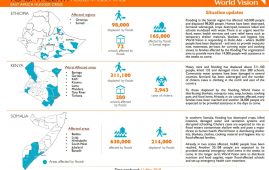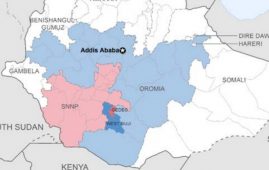In a post from March 2012 here, i discussed the issue of modern day slavery of Ethiopian women in the middle-east and how countries like Indonesia and the Philippines insisted on better wages and conditions for domestic workers going to Saudi Arabia. These demands were followed by a ban as the Saudi Arabian government could not come into agreement on working conditions and pay.
Now in a similar and what i consider groundbreaking move, the Kenyan government has barred its citizens from seeking employment in the middle-east as domestic workers, per this piece on BBC (read more). I find this to be an important move that symbolizes a growing concern about the safety of African women migrating to the middle-east as domestic workers.
As a concerned citizen and a woman, i find the sheer number of middle-east bound female domestic workers i have encountered at Addis Ababa airport on several occasions throughout this year highly alarming. A week ago i started a conversation with a few of them as we stood in the airport immigration queue. Most of them asked me questions about what to do with the immigration forms they had in hand and how to proceed. One of them stuck out for me and we connected at a level i still can’t comprehend because i was utterly moved by her presence. She came from a rural town near Butajira in South-Central Ethiopia and now standing in line ahead of me her life’s journey would take her to Riyad, Saudi Arabia. As always i am curious to find out what sets these women on this path so i began to inquire on the factors that led to her taking the decision to be in that airport ready to set flight.
Unpretentious, trusting and open in her conversation with me, she nonchalantly expressed how she has never been interested in leaving her home town and on several occasions turned down this offer. She leads a modest life selling legumes in her community. However, her younger sister working as a domestic worker in Qatar insisted that she leave as well and explore a life beyond legumes. Her sister apparently had successfully processed the migration of eight women from her hometown and now was ever more insistent that her sister leave as well. The sister based in Qatar began her campaign of persuasion by convincing her sister’s husband to permit her to leave. He agreed that he was capable of taking care of their two children in her absence and insisted that she go, leaving her two and five-year old daughters behind in his care.
“Emama where are you going and when are you coming back” her two-year old asks her, she tells me. She laughs and continues that she responded by telling her “i’m going to go buy you bread”, “you want bread right?”, and her daughter agrees that she should come back with bread.
I am moved at this moment by both the simplicity in her approach to her journey and by the symbolic meaning of what “fetching bread” actually means and entails. She laughs some more and her vivaciousness tugs at my heart strings. Our conversation has attracted two more in the line, one going to Oman and the other to Saudi Arabia as well. The latter has consciously decided that she wants to help me pull my luggage as the queue progresses – i tell her not to worry, but she continues to pull it together with me- often times her hands resting on mine. I find that endearing and connecting – we are two women on different life paths yet connected in the simplicity of a shared presence.
We’re chatting away some more – about what i do, what they do, where they’re going, where i am going, about other people in the queue. The conversation is not flippant or judgmental- it is imbued with a human understanding and connection. I am in that moment touched by these women and their understanding of the world, their authenticity, the absence of cynicism, the will and courage to discover the unknown based on a picture drawn by someone else.
We’re at the top of the escalator where our paths have come to an end and will diverge. The last glimpse i have is of their hijab draped bodies hurriedly walking towards their gates. I take in a moment watching them walk away, silently expressing well wishes and protection in their new lives. And in that moment i make a covenant with myself – I will do something about this!
************
* This article was originally published on AfricanFeminism website, on June 23, 2012, titled “A Human Connection : Modern Day Slavery of Ethiopian Women II”, authored by Billene Seyoum. It is republished here with the permission to do so.
Previous: Modern day slavery of Ethiopian women – Billen Seyoum.
Check the Human Rights archive or the Women archive for related posts.






The way forward is not to ban poor people from seeking out some of the few opportunities available to them in this world, but to help improve their working conditions through agreement with Arab governments, to lessen the risks of abuse by means of Ethiopian consulates taking an interest, and in the long run also to improve opportunitites at home.
This innocent reflection reminds many who have travelled even once. You see a lot of women in thier youth migrating and it makes you wonder where are the people who are supposed to understand this issue well, build systems to either enhance the skills that makes workers get decent work that takes them out of poverty? i am wondering where are all ‘concerned citizens’ who bash the political system for all minor trivial issues? is it by coincidence or carelessness that i see none comenting on this?